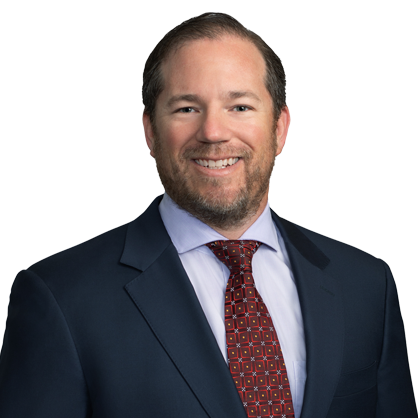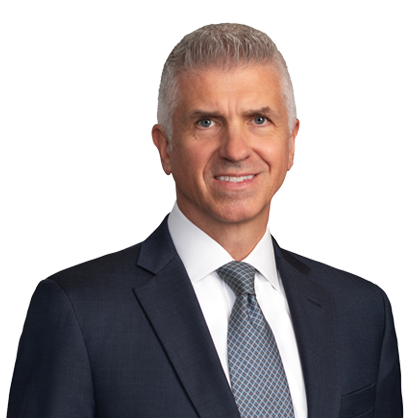Insights
Thought Leadership
Generations Summer 2022 - The Archegos Scandal: The SEC Responds
In late March 2021, Archegos Capital Management LP, the family office of Bill Hwang, a former New York-based hedge fund manager, defaulted on margin loans used to acquire total return swaps, a form of derivative contract. As a result, several prominent banks were forced to sell approximately $20 billion in securities to cover Archegos' obligations. This exposed a major regulatory blind spot related to the trading of swaps and other derivatives by institutional investors, including family offices.
Swaps are financial instruments that exchange one stream of income for another. They are a key way activist investors build up positions in companies before other investors or the companies themselves become aware of their interest. There is currently no required reporting of swap positions. The public may access information on publicly traded stock holdings of institutional investors (such as hedge funds, mutual funds or family offices) by reviewing reports filed on forms 13F and 13D or 13G filed with the Securities and Exchange Commission (SEC). These forms serve to identify significant stock holdings of large institutional investors. Under current SEC regulations, investment firms that own shares designated as 13F securities with an aggregate fair market value of $100 million or greater must file a Form 13F detailing their portfolios every quarter. Investors whose beneficial ownership in a single corporation exceeds 5 percent in any class of equity securities must file a Form 13D or 13G. Family offices have historically avoided public disclosure by seeking confidential treatment from the SEC for reports filed on Form 13F. Investors, including family offices, however, are not currently required to report any purchase or sale of swaps.
Following the 2008 financial crisis, the Dodd-Frank Act implemented a rule known as the family office rule, which provides that a family office will not be considered an investment adviser under the Investment Advisers Act of 1940 (the Advisers Act). The rule provided that any company that (1) provides investment advice only to "family clients"; (2) is wholly owned by "family clients"; (3) is exclusively controlled by "family members" and/or "family entities"; and (4) does not hold itself out to the public as an investment adviser is excluded from the definition of "investment adviser" under the Advisers Act. The thought behind exempting family offices from SEC registration was that no third-party investor capital would be managed by a family office, subject to limited exceptions. As a result, Archegos was neither registered as an investment adviser with the SEC nor subject to any reporting obligations with respect to the financial instruments it was trading.
Archegos managed the personal assets of Hwang. Prior to founding Archegos in 2013, he ran the New York-based hedge fund Tiger Asia Management. In 2012, Hwang pled guilty to criminal fraud charges and paid $44 million to settle a civil insider trading case with the SEC. The SEC alleged that he used confidential information received in private placement offerings to short sell three Chinese bank stocks. The settlement also prohibited Hwang from associating with brokers, dealers, municipal securities dealers, municipal advisers, transfer agents or credit agencies. He was effectively banned from managing hedge funds. After the settlement, Hwang wound down Tiger Asia Management and opened Archegos. In April 2020, the SEC voted to vacate the ban outlined in the settlement.
As of 2020, Archegos managed assets in an amount estimated to be in the range of $10 billion. Archegos used total return swaps to build up massive positions in stocks including ViacomCBS Inc. and Discovery Inc. without triggering public disclosure requirements. This allowed Archegos to mislead some of the largest and most sophisticated financial institutions in the U.S. into continually extending credit. Archegos entered into swaps with Credit Suisse, Deutsche Bank, Goldman Sachs, Morgan Stanley, MUFG, Nomura, UBS and Wells Fargo, among others. To avoid market risk, many of the banks bought the securities underlying the swap and paid the gains on the shares to Archegos. As Archegos bought more swaps, the banks bought more shares, artificially inflating the stock prices of the securities underlying the swaps. The use of swaps allowed Archegos to maintain anonymity despite having exposure to the underlying securities that was well in excess of the normal disclosure thresholds. In its 2022 civil complaint against Hwang, the SEC stated that when combining its equity and derivative stakes, Archegos accumulated direct and indirect positions in stocks equal to more than 70 percent of the outstanding shares of GSX Techedu Inc., 60 percent of Discovery Communications and 50 percent of IQIYY Inc. These large, undisclosed positions enabled Archegos to manipulate the price of the securities.
In March 2021, the value of the securities underlying the swaps held by Archegos fell sharply, causing its lenders to make margin calls against the swap positions to cover the interest payments owed on the swaps. Archegos failed to meet the margin calls, which prompted a $20 billion stock sale, as each lender rushed to sell off its positions to satisfy Archegos' defaulting swaps. Nomura reported a $2.87 billion loss related to the winding down of these positions and changes in market prices. Credit Suisse reported a $5.5 billion total loss (which forced it to raise $1.9 billion in capital from investors to support its balance sheet). Though Goldman Sachs, Morgan Stanley, UBS and Deutsche Bank also extended credit to Archegos in the swap transactions, they liquidated their positions quickly and managed to avoid significant losses relative to the other lenders. In total, banks linked to Archegos suffered combined losses of around $10 billion.
Following the Archegos collapse, there was concern that the SEC would regulate family offices directly and possibly eliminate the exclusion of family offices from the definition of "investment adviser" under the Advisers Act. Others worried that family offices and other market participants would be made subject to enhanced disclosure requirements under the Securities Exchange Act of 1934.
The SEC responded to the Archegos scandal in December 2021 with proposed new rules that directly addressed derivatives and security-based swaps. The new rules were aimed at all market participants, not just family offices. One proposed rule would prohibit fraudulent, deceptive or manipulative conduct in connection with all transactions in security-based swaps, including misconduct in connection with the exercise of any right or performance of any obligation under a security-based swap. A second proposed rule would prohibit any officer, director, supervised person or employee of a security-based swap entity, or any person acting under such person's direction, to take any action to coerce, manipulate, mislead or fraudulently influence the entity's chief compliance officer in the performance of their duties under the federal securities laws. A third proposed rule would require any person with a security-based swap position that exceeds a specified reporting threshold to promptly file a report disclosing its position and to amend those reports promptly in the event of any material change to a previously filed report. These proposed rules would require investors to disclose swap positions within one day if they exceed $300 million ($150 million in some cases) or 5 percent of a company. The large swap positions reported would also be made public. The goal would be to prohibit persons involved in securities-based swaps from manipulating prices or trading on insider information. Family offices involved in security-based swaps would fall within these proposed rules.
In addition to these rules, the SEC proposed that holders of certain cash-settled derivative securities will be deemed beneficial owners of the underlying equity securities if the derivative is held with the purpose or effect of changing or influencing the control of the issuers of the securities.
The SEC also proposed replacing year-end filing obligations to require that investors file within five business days of the end of the month in which their percentage ownership of any issuer exceeds 5 percent or within one business day of exceeding 10 percent. Holders of security-based swaps that exceed these thresholds will have to file a report detailing their position as well as any positions in a security or loan underlying a swap and any other instrument relating to the security or loan. There are, of course, concerns that accelerating the filing deadline for certain reports from 10 days to five days and requiring amendments be filed within one business day after a material change will cause significant compliance burdens on investors.
It is likely the SEC will in the future propose rules that attempt to balance the unique nature of a family office against the SEC's desire to reduce volatility in the market. It is possible that the SEC will seek to require registration of family offices as investment advisers, or, in light of Hwang's prior bad acts and insider trading violations, the SEC may want to consider requiring family office members to certify that they have not committed any securities law violations in the past in order to qualify for the family office exemption.
Would you like to receive our Day Pitney Generations Newsletter? Sign up here.


